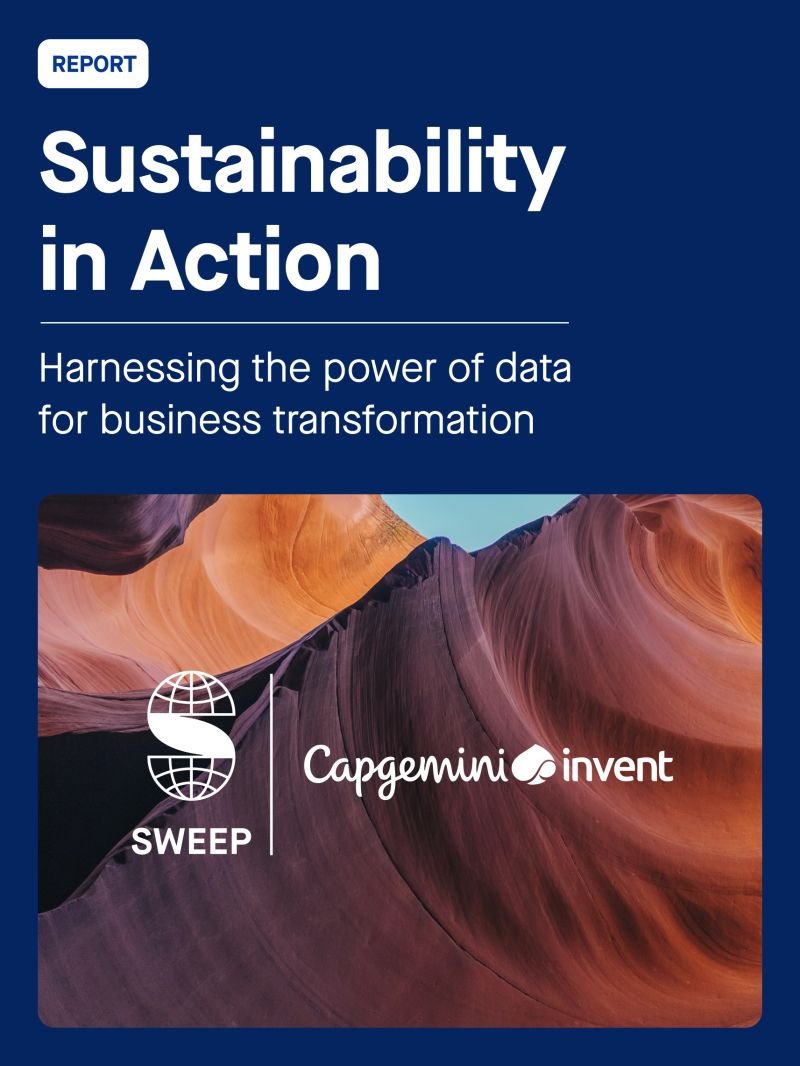
Sustainability and ESG News
PwC’s State of Decarbonization Report: The Strategic Path to Net Zero
Decarbonization is not just a necessity for the planet but a strategic opportunity for businesses. This article explores how companies can align their decarbonization efforts with growth, profitability, and stakeholder trust.
Understanding the Net-Zero Standard V2: Key Insights for Businesses
The Science Based Targets initiative (SBTi) has released the consultation draft of its Net-Zero Standard V2, aimed at helping businesses set clear, science-backed targets to reach net-zero emissions. This draft outlines the necessary steps and criteria for companies to follow in reducing their carbon footprint and achieving net-zero by 2050.
The Sustainability Value Triangle: A Path to Business Success
The "Sustainability Value Triangle" report shows how businesses can unlock value by integrating sustainability with finance and IT. The key to success lies in collaboration, data, and new technologies like AI.
CFOs Double Down on Sustainability Despite Political Headwinds
Despite the new U.S. administration's anti-ESG stance, CFOs remain committed to sustainability. A recent survey from BDO reveals that many companies plan to maintain or even increase their sustainability investments.
China Unveils Basic Standards for Corporate ESG Disclosure
In December 2024, China introduced its Basic Standards for Corporate Sustainability Disclosure, aiming to align with global ESG practices. This initiative marks a significant step towards a unified national ESG reporting system, with full implementation expected by 2030.
IFRS Foundation releases guide for voluntarily applying ISSB Reporting Standards
The IFRS Foundation has taken a significant step in promoting sustainability reporting by launching a comprehensive guide for companies. This guide is designed to help businesses voluntarily adopt the International Sustainability Standards Board (ISSB) Sustainability Reporting Standards, ensuring they can meet the growing investor demand for transparent and comparable sustainability information.
Data-Driven Sustainability: Capgemini and Sweep’s Insights
The “Sustainability in Action” report by Capgemini and Sweep highlights the critical role of data in driving sustainability efforts across various industries. It emphasizes the need for robust data management to meet regulatory demands and achieve sustainability goals.
A World in Balance 2024: Accelerating Sustainability Amidst Geopolitical Challenges
The Capgemini Research Institute’s latest report highlights significant strides in sustainability, focusing on circular economy practices, sustainable design, and biodiversity. Despite geopolitical challenges, companies are making notable progress in integrating sustainability into their core operations.
COP16: A Catalyst for Change for Financial Institutions
COP16 is set to drive significant and lasting changes in the financial sector by prioritizing nature and biodiversity investments. The conference aims to engage the private sector in making permanent shifts towards sustainable finance.
EU Commission Publishes FAQs on New Corporate Sustainability Reporting Rules
The European Commission (EC) has released a set of frequently asked questions (FAQs) to aid in the implementation of the Corporate Sustainability Reporting Directive (CSRD). These FAQs aim to clarify various aspects of the CSRD and the first set of the European Sustainability Reporting Standards (ESRSs), ensuring stakeholders can comply with regulatory requirements effectively.
CEOs on Creating Value with Climate Action
In a recent survey by PwC, 4,700 CEOs shared their insights on how climate action can drive business value. Despite the challenges, many CEOs are finding that addressing climate-related opportunities and risks can lead to better financial performance.
IASB Releases Draft Guidelines for Corporate Climate Risk Reporting
The International Accounting Standards Board (IASB) has recently published a consultation document aimed at helping companies improve their reporting on climate-related risks and other uncertainties. This initiative responds to growing investor demand for clearer and more consistent climate-related information in financial statements.
PwC’s Inaugural Global CSRD Survey 2024: The Promise and Reality of CSRD Reporting
According to PwC’s Global CSRD Survey 2024, Dutch companies are leading in readiness and confidence for implementing the new Corporate Sustainability Reporting Directive (CSRD). An impressive 79% of Dutch businesses expect to comply with the CSRD on time, significantly surpassing the global average of 63%. This optimism is fueled by progress made in CSRD implementation, even as challenges related to data quality, value chain complexity, and human resources persist
ESMA Urges Companies to Prepare for New CSRD Sustainability Reporting Requirements
The European Securities and Markets Authority (ESMA) has issued a Public Statement urging companies to prepare for the new Corporate Sustainability Reporting Directive (CSRD) requirements. The CSRD expands sustainability reporting obligations for over 50,000 companies, emphasizing governance arrangements, materiality assessments, and data collection systems. ESMA highlights the importance of readiness to meet detailed reporting standards and conduct double materiality assessments.
ESG Considerations in M&A: Navigating the Changing Landscape
In the ever-evolving landscape of Mergers & Acquisitions (M&A), environmental, social, and governance (ESG) factors are gaining prominence. Deloitte’s 2024 M&A Trends Survey reveals that successful dealmakers embrace uncertainty, prioritize value creation, and bridge gaps between private equity and corporate approaches. By understanding and leveraging ESG considerations, companies can navigate the changing M&A landscape effectively.
U.K Government Expected to Redirect £100 billion Investments Toward Climate Research
Research indicates that clearer and stricter domestic green policies could redirect up to £100 billion in global investments to the UK. However, recent government actions, including weakening key net zero commitments, have led many investors to consider moving their funds to more supportive markets like the US, EU, and China. While 83% of financial service organizations still see the UK as a top market, two-thirds are contemplating or have already shifted investments elsewhere. UKSIF calls for mandatory climate risk disclosures and other regulatory enhancements to reestablish the UK's leadership in sustainable finance and attract the necessary private capital for achieving net zero goals.
EU Parliament Approves Progressive Corporate Sustainability Mandate
The European Parliament's recent approval of the Corporate Sustainability Due Diligence Directive (CSDDD) signifies a significant step towards formal adoption by the European Union, aiming to establish a legal framework for corporate responsibility in supply chains. The directive, also known as CS3D, mandates due diligence obligations on companies operating within the EU or with significant business ties there, encompassing environmental and human rights concerns. Despite its initial proposal undergoing substantial dilution during intense negotiations, the final version reflects compromises to accommodate varying interests. Notably, the directive's scope extends beyond direct corporate actions to encompass subsidiaries and supply chain partners, potentially holding both EU-based and non-EU companies liable for sustainability breaches.

















